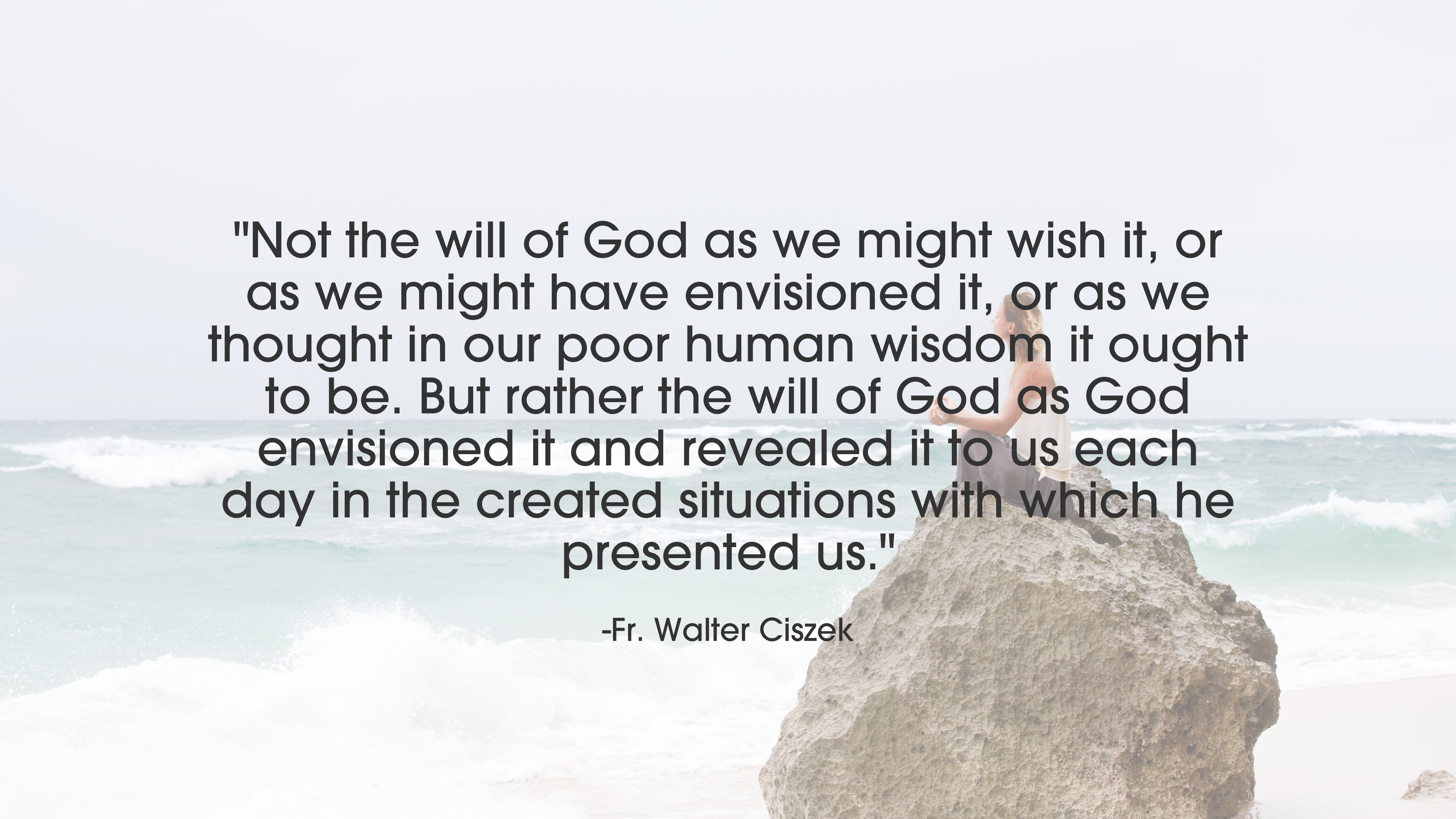
The Purpose of My Life
Many times I have read high-reaching exhortations in Scripture like “seek first the Kingdom of God,” and “remain in my love,” and “love one another as I have loved you,” and “be anxious for nothing,” to name only a few. Not only do I read them, but I also agree with them and pray that I would understand them more. Yet I realize that my reading, agreeing with, and to some degree understanding these truths pale in the face of being transformed by them and allowing them to become part of who I am.
When Fr. Walter Ciszek was taken prisoner in communist Russia during WWII, he was stripped of everything. He lost material possessions, communication with loved ones, familiar routines and comforts, and the freedoms we so often take for granted. He could no longer decide where to go, what to talk about with the people around him, or even basic things like when to go to the bathroom. Yet in his book, He Leadeth Me, Fr. Ciszek describes his captivity as a time when God led him to a place of true interior freedom. It was the constricting circumstances themselves that served as the backdrop for God to teach him great lessons of love and trust and faith:
Through the long years of isolation and suffering, God has led me to an understanding of life and his love that only those who have experienced it can fathom. He had stripped away from me many of the external consolations, physical and religious, that men rely on and had left me with a core of seemingly simple truths to guide me. And yet what a profound difference they had made in my life, what strength they gave me, what courage to go on! I wanted to tell others about them – indeed, I felt one reason that God in his providence had brought me safely home was so that I might help others understand these truths a little better.
After voluntarily entering Russia with the desire to share his faith with a needy people, Fr. Ciszek describes a time of great disappointment in realizing that no one would allow him to speak about religion or God for fear of government retaliation. His entire reason for going to Russia, as he discerned it, was nullified by the insurmountable obstacle of imposed silence. And then he came to a simple, yet profound truth: the sole purpose of him being in Russia, and indeed of his entire life, was to do the will of God.
…not the will of God as we might wish it, or as we might have envisioned it, or as we thought in our poor human wisdom it ought to be. But rather the will of God as God envisioned it and revealed it to us each day in the created situations with which he presented us…. [T]o grasp this divine truth, simple as it sounds, and to work at it, to face each moment of every day in the light of its inspiration, to attempt, insofar as we can, to recall it in every situation and circumstance of our daily lives, to labor day in and day out to make it the sole principle by which our every action is guided and towards which we aim, is to come to know at last true joy and peace of heart, secure in the knowledge we are attempting always and in everything to do God’s will, the only purpose ultimately for which we exist, the end for which alone we were created. There is no greater security a man could ask, no greater serenity a man can know.
Fr. Ciszek’s dire circumstances offered him the privilege of learning these truths deeply and intimately. My life does not offer me the same circumstances, and I cannot honestly say that I wish for them. Yet I do intensely long for Jesus and his truths. And then, in praying and reflecting on He Leadeth Me, I suddenly realized with incredible hope and joy, that even though my life does not include the trials that Fr. Ciszek endured, I can still apply this divine truth of knowing that I exist to do the will of God, to my mundane life. In my everyday interactions with others, beginning with those closest to me, I can be an instrument of God’s love. I can seek to glorify Jesus in every encounter I have with others, especially in the most difficult interactions. When I am tired, feel overworked or mistreated in any way, I can choose to respond with the love of Christ and thereby seek in all things to glorify God.
“So, whether you eat or drink, or whatever you do, do all to the glory of God” (I Cor. 10:31).
By Adriana Gonzalez
